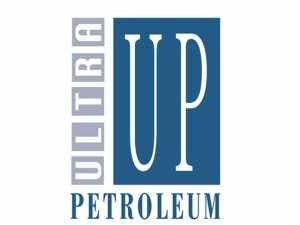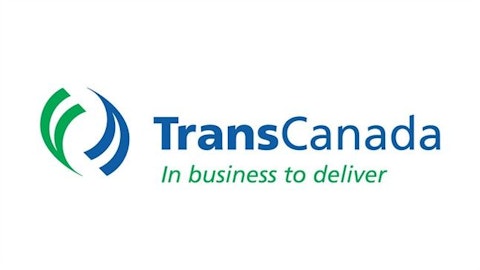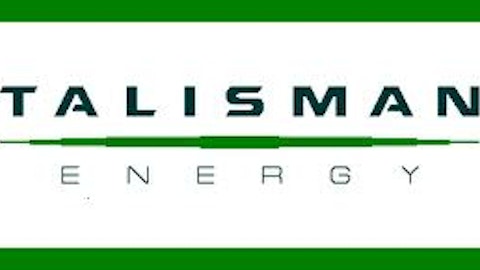Natural gas prices remain at depressed levels, but appear to be heading higher of late. With prices in the mid-$4 range lately, some drillers are already in a position to make money. Investors should be looking at Ultra Petroleum Corp. (NYSE:UPL), Chesapeake Energy Corporation (NYSE:CHK), and Rosetta Resources Inc. (NASDAQ:ROSE).

The Big Fall
New drilling methods greatly increased the supply of natural gas over the last decade. Without an export market, the U.S. needed to absorb the increased supply. It couldn’t do it and prices plummeted to all-time lows.
Since that drop, however, the number of rigs drilling for natural gas has fallen, utilities have increasingly switched from coal to natural gas, the country is slowly moving toward exporting natural gas, and natural gas is being used in fleet vehicles. In other words, demand has picked up. Gas prices have responded by inching slowly higher. Some industry analysts are calling for $5 natural gas.
What it Costs
Getting gas out of the ground isn’t free, which is why some driller simply stopped drilling when prices got too low. According to Ultra Petroleum Corp. (NYSE:UPL), the average drilling cost for bringing natural gas out of the ground is over $7. However, that covers a range from around $3 for Ultra to over $10 for Midstates Petroleum Company Inc (NYSE:MPO).
With gas prices in the four dollar range, Ultra, Chesapeake Energy Corporation (NYSE:CHK), and Rosetta Resources Inc. (NASDAQ:ROSE), which all have costs at or near $4, are set to benefit sooner than competitors who need higher prices to turn a profit.
The Cheapest
Ultra Petroleum Corp. (NYSE:UPL) is an independent oil and gas driller. The company operates in southwest Wyoming and Pennsylvania. At the end of 2012, the company owned approximately 49,000 net acres in Wyoming and 261,000 net acres in Pennsylvania.
Like most drillers, Ultra Petroleum Corp. (NYSE:UPL)’s top and bottom lines jump around a lot. Last year, however, looked particularly brutal, with a loss of over $14 a share. That loss was largely due to an asset write down. From the 2012 10k: “As a result of low gas prices during 2012, we were required to record a $2.9 billion non-cash, ceiling test write-down of the carrying value of our oil and gas properties.”
That write down is likely to be reversed in the future as natural gas prices recover. Moreover, the write off was non-cash, so it didn’t impact the company’s underlying business. With low drilling costs, Ultra Petroleum Corp. (NYSE:UPL) will be one of the first to benefit from higher prices.
No Stones Here
Rosetta Resources Inc. (NASDAQ:ROSE) is also an independent exploration and production company. Its business is primarily located in South Texas, where it owns 72,000 net acres. The company’s main focus is on the Eagle Ford area, which represented 96% of the company’s total production last year.
Rosetta Resources Inc. (NASDAQ:ROSE) has been selling off less desirable lands and allowing land leases to expire so that it can focus all of its efforts on the Eagle Ford. While keying in on a good region has helped the company to grow its top and bottom lines over the last three years, there is some risk in having such a limited business scope.
That said, the upside has been impressive, with earnings jumping from less than $0.40 a share in 2010 to about $3.00 last year. If gas prices continue to head higher, the company’s profits have the potential to keep advancing. That could mean share price gains for more aggressive investors.
Bigger Issues
For Chesapeake Energy Corporation (NYSE:CHK), natural gas prices have actually been less of an issue than corporate matters. Indeed, activist investor Carl Icahn took on the company and its former founder and CEO in a very public way. Icahn was able to get the CEO ousted after he took on a huge amount of debt while buying natural gas properties leading into the precipitous fall in gas prices.
The CEO was viewed as a “land man,” meaning he was good at buying land and less focused on drilling. The ouster left the company’s shares higher, but didn’t remove the problems of too much debt. Asset sales have been the order of the day of late, including a sale to a Chinese company that some industry watchers suggest was made at too low a price.
The company recently brought in a new CEO who is an industry veteran and trained as a petroleum engineer. Although the company still has issues to solve, refocusing on working its own land just as natural gas prices start to rise should notably aid in the turnaround effort. That said, this stock isn’t appropriate for investors who shy away from corporate drama.
Natural Gas is Back?
It’s too soon to say that natural gas is back, but it certainly is back from the dead. That should mean increasing profits at drillers who can get the commodity out of the ground cheaply. Ultra Petroleum Corp. (NYSE:UPL), Chesapeake Energy Corporation (NYSE:CHK), and Rosetta Resources Inc. (NASDAQ:ROSE) all fit that bill. Ultra is the most diversified option, but Rosetta Resources Inc. (NASDAQ:ROSE) is the one putting up the numbers right now. Chesapeake Energy Corporation (NYSE:CHK), meanwhile, has so much news surrounding it that investors should be prepared for corporate events taking center stage for at least a little longer.
The article The Low Cost Gas Drillers originally appeared on Fool.com and is written by Reuben Brewer.
Reuben Brewer has no position in any stocks mentioned. The Motley Fool recommends Ultra Petroleum. The Motley Fool owns shares of Ultra Petroleum and has the following options: Long Jan 2014 $20 Calls on Chesapeake Energy, Long Jan 2014 $30 Calls on Chesapeake Energy, Short Jan 2014 $15 Puts on Chesapeake Energy, Long Jan 2014 $30 Calls on Ultra Petroleum, Long Jan 2014 $40 Calls on Ultra Petroleum, and Long Jan 2014 $50 Calls on Ultra Petroleum. Reuben is a member of The Motley Fool Blog Network — entries represent the personal opinion of the blogger and are not formally edited.
Copyright © 1995 – 2013 The Motley Fool, LLC. All rights reserved. The Motley Fool has a disclosure policy.



